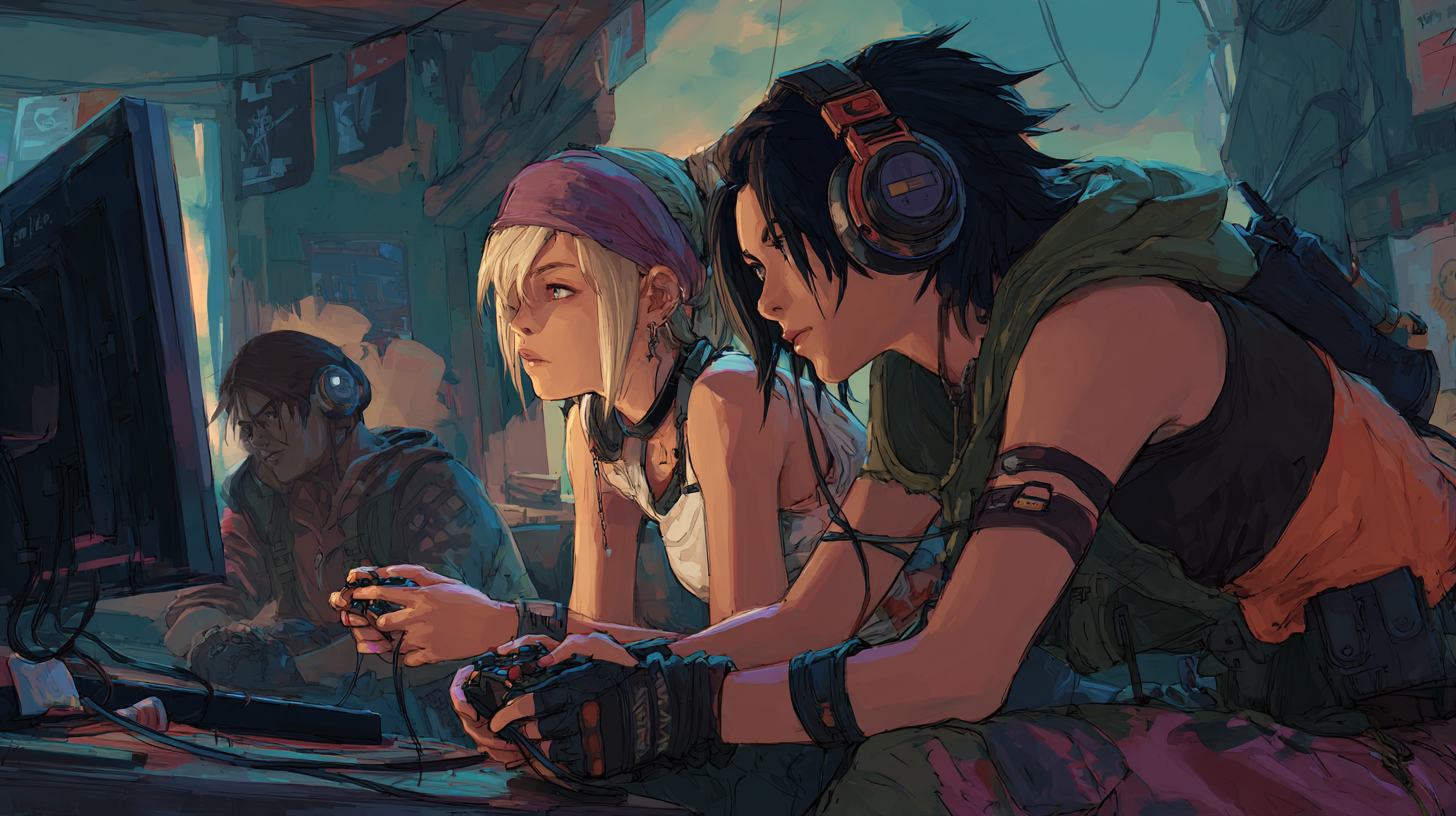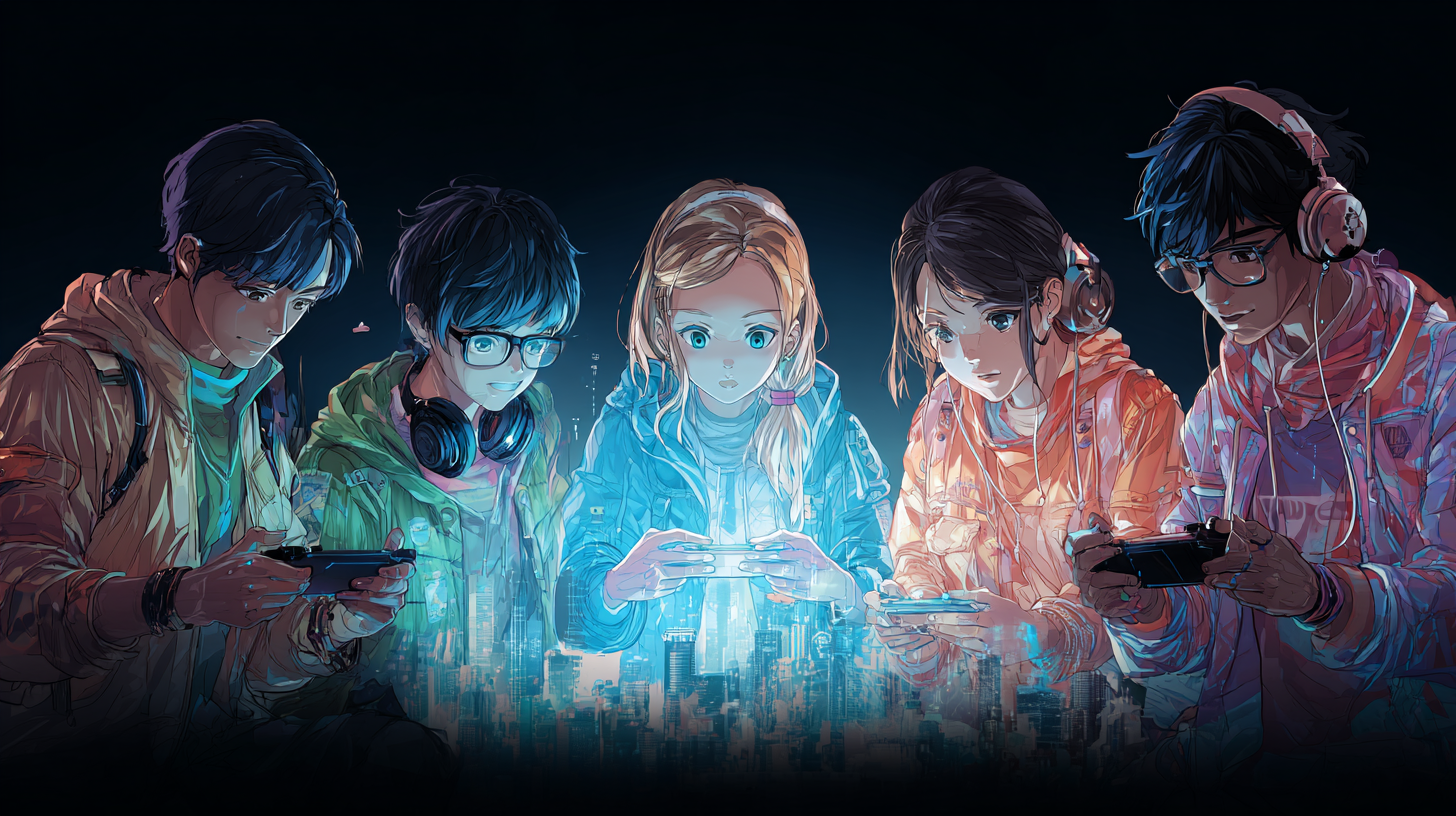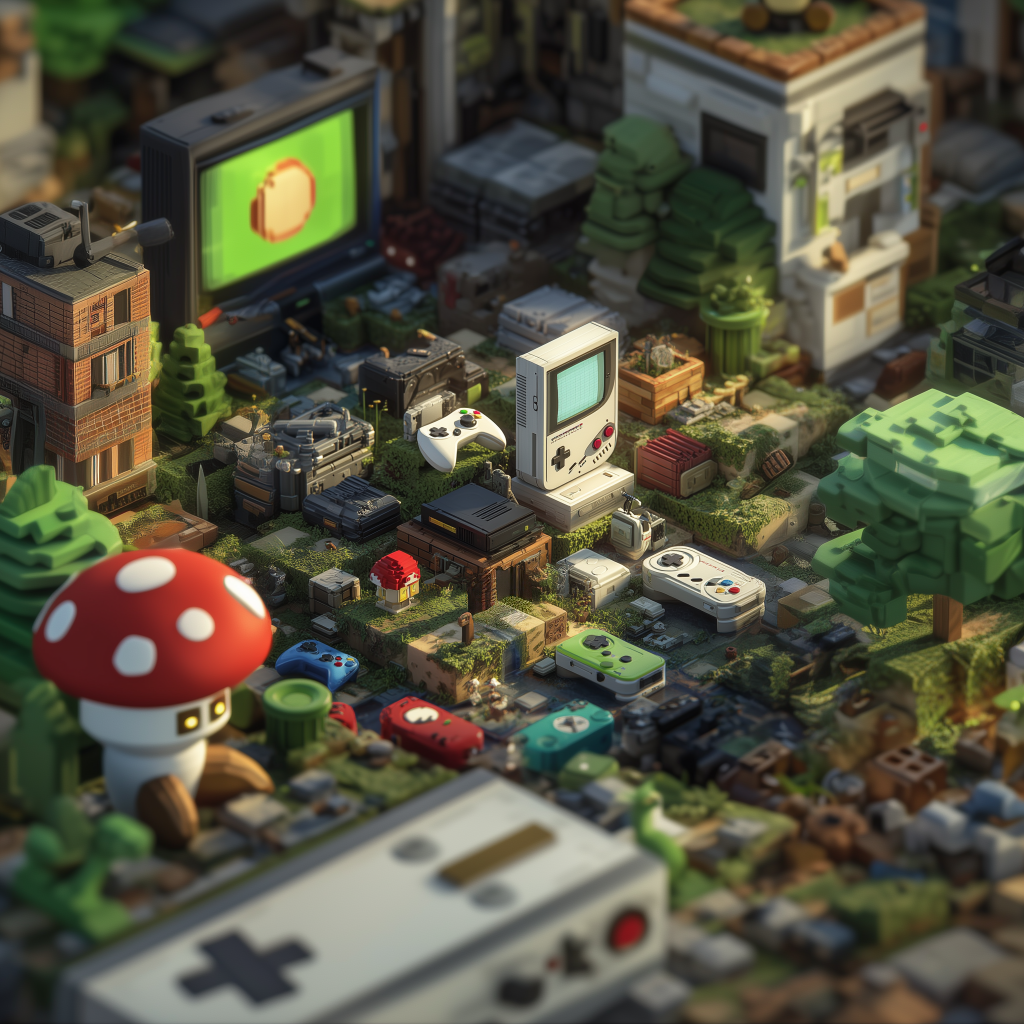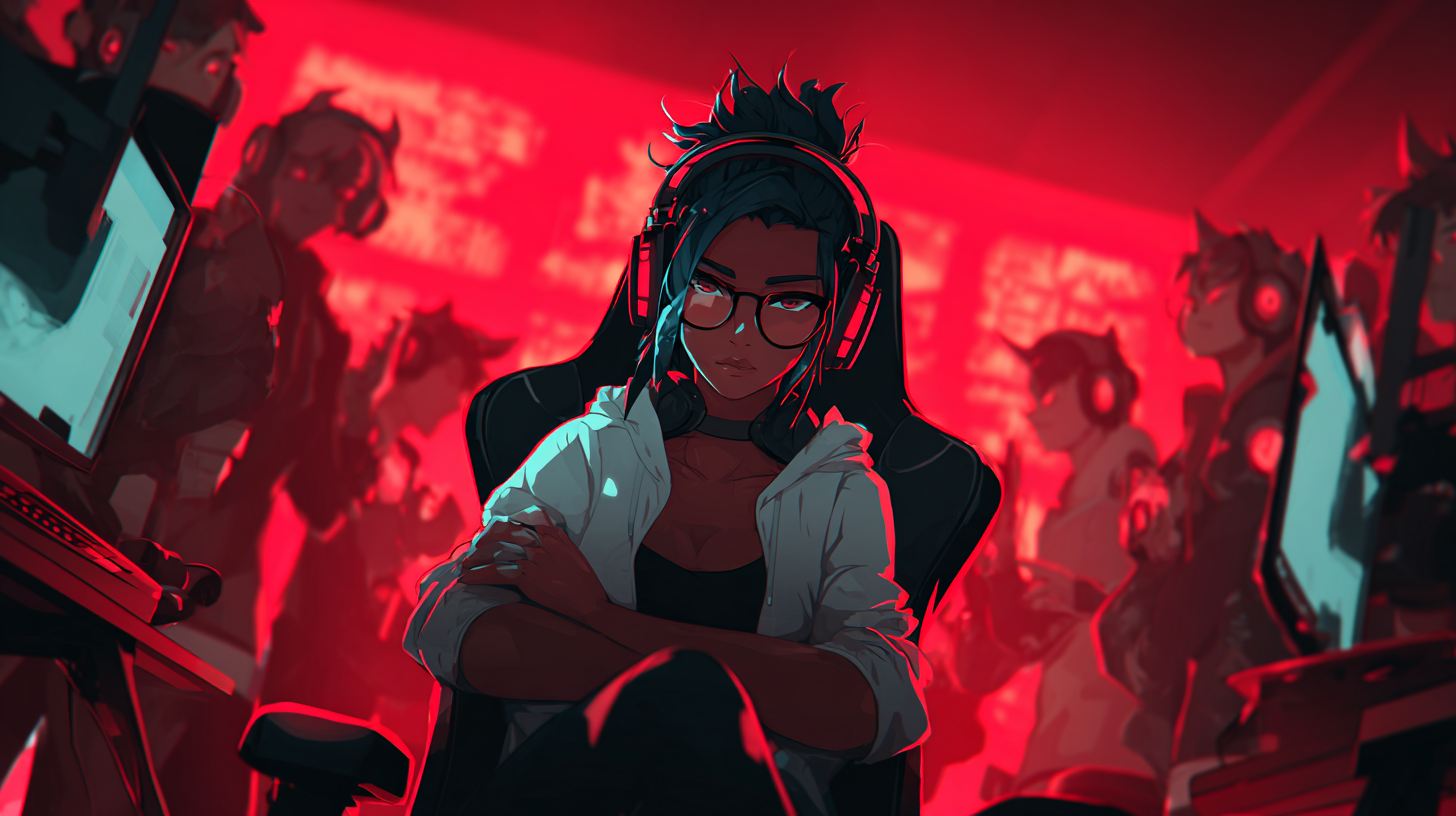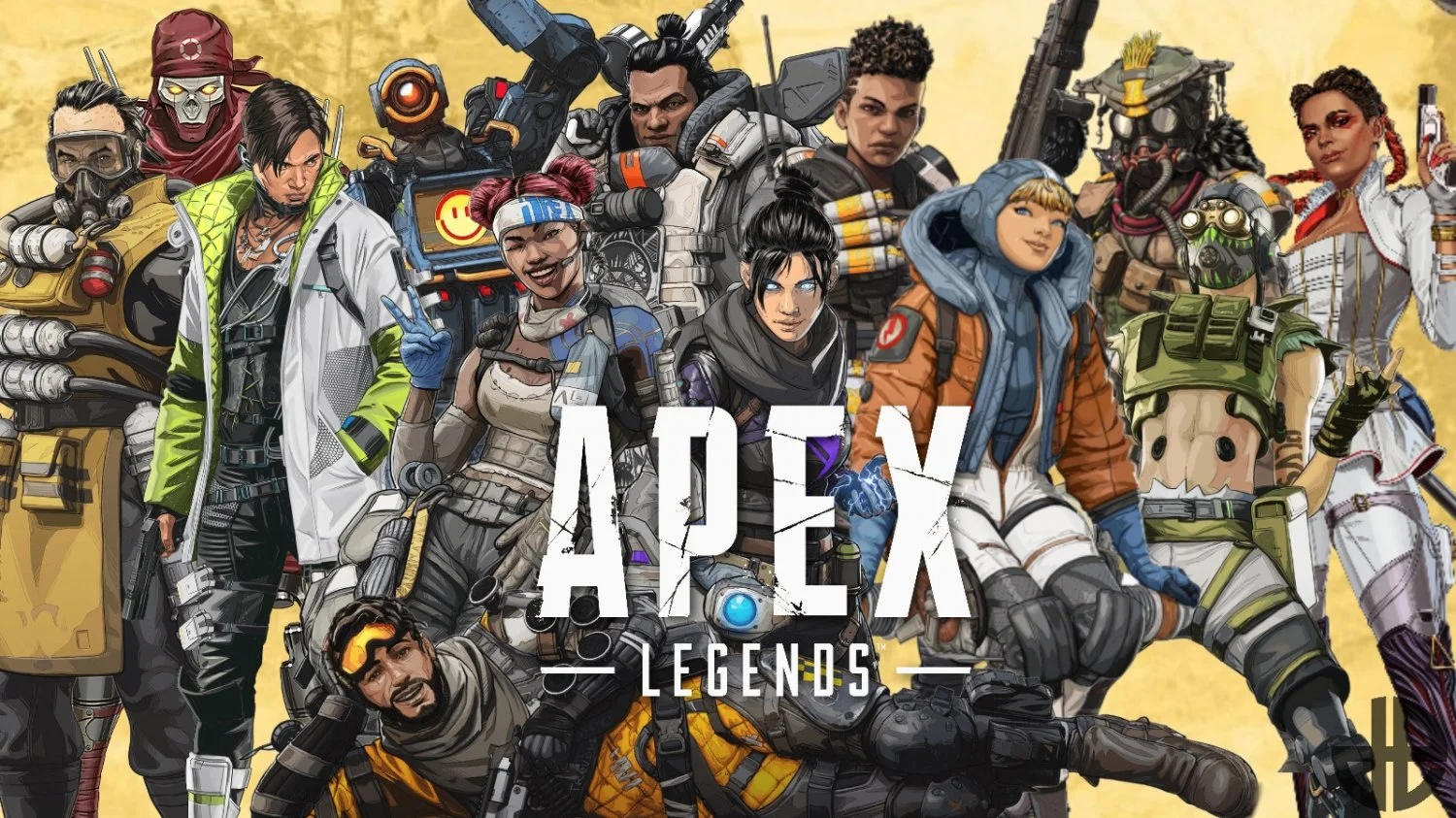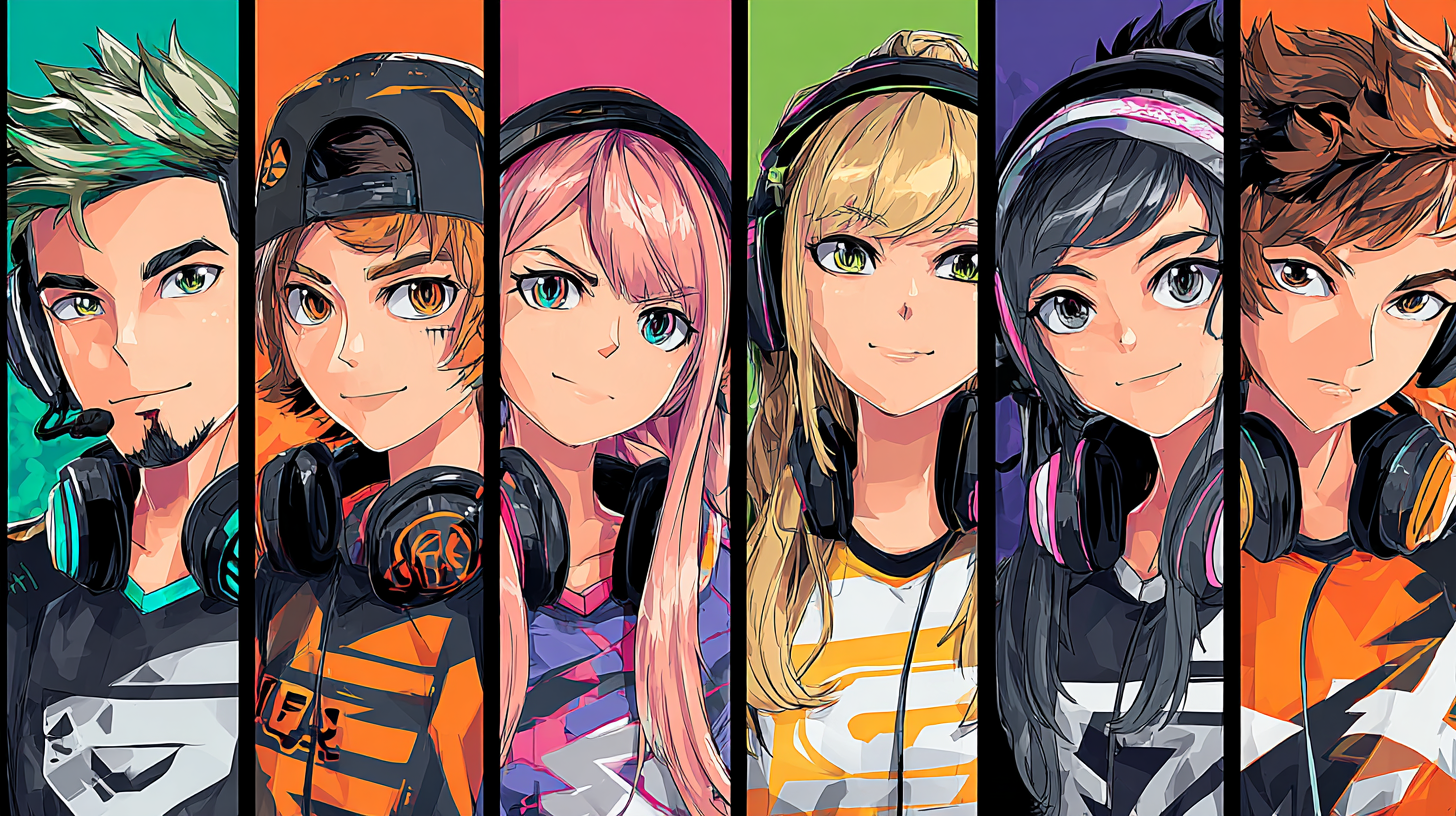"They're not real friends – you've never even met them in person." If you're a gamer, you've probably heard this dismissive comment about your online friendships. But here's the uncomfortable truth that non-gamers struggle to accept: gaming friendships are often deeper, more authentic, and more resilient than many traditional in-person relationships.
This isn't just anecdotal observation. Research increasingly shows that gaming friendships create unique bonding opportunities through shared challenges, consistent communication, and trust-building experiences that traditional friendships rarely replicate. The person who helped you clutch a crucial round at 2 AM might know you better than the coworker you see every day.
Introduction
Gaming friendships form differently than traditional relationships. You don't bond over small talk at a party or shared history from childhood. Instead, gaming friendships are forged through cooperation under pressure, hundreds of hours of shared experiences, and communication that strips away many superficial social filters.
In this article, we'll explore why gaming friendships often create stronger bonds than in-person relationships. We'll examine the psychological mechanisms that make gaming uniquely suited for deep connection, the role of shared challenges in building trust, and how modern communication in gaming environments creates surprising intimacy.
We'll also address the criticisms – because gaming friendships aren't perfect and do face unique challenges. But by the end, you'll understand why that person you've played with for three years but never met might genuinely be one of your closest friends.
While finding compatible gaming friends can be challenging, modern platforms using swipe-to-match interfaces and personality-based pairing are making it easier to find people who complement your communication style and playstyle – the foundation for lasting friendships.
The Psychology of Shared Challenge
Gaming creates bonding opportunities through shared challenges that traditional friendships rarely encounter.
Adversity Creates Connection
Psychologists have long known that facing adversity together creates powerful social bonds. Gaming manufactures these experiences consistently:
High-stakes cooperation: When you're down 12-11 in a Valorant ranked game and need perfect execution to win, that pressure creates bonding moments similar to athletes on a championship team.
Repeated challenge cycles: Unlike one-off intense experiences, gaming delivers challenge-bonding-reward cycles dozens or hundreds of times. Each successful cooperation strengthens the relationship.
Controllable intensity: Gaming lets you choose your intensity level. Want light cooperation? Play casual modes. Need serious teamwork? Tackle ranked climbs or tournament competition. The relationship deepens at your chosen pace.
Failure normalized: Gaming friendships normalize failure in ways traditional relationships don't. You've seen each other at your worst, made mistakes together, and learned to recover. This creates psychological safety that enhances intimacy.
Complementary Strengths Appreciation
Gaming reveals and values each person's unique contributions:
Role specialization: The support player who sets up your kills, the shot-caller who keeps everyone focused, the mechanical genius who clutches impossible situations – gaming friendships develop around mutual appreciation of complementary skills.
Non-hierarchical value: Unlike many real-world relationships where social status or wealth create hierarchies, gaming friendships often value each person's contribution equally. The Silver player with great communication might be as valued as the Diamond mechanical player.
Recognition culture: Gaming culture explicitly recognizes contributions. "Nice play," "good call," "you saved that round" – constant positive reinforcement strengthens bonds.
Dependency breeds respect: When you genuinely need your teammates' skills to succeed, respect and appreciation develop naturally. You're not just tolerating each other – you need each other.
Goal-Oriented Connection
Shared goals create purpose that sustains friendships through challenges:
Concrete objectives: Climbing from Gold to Platinum, winning a tournament, mastering a champion – clear goals give gaming friendships direction that social friendships often lack.
Measurable progress: You can see yourselves improving together. Ranked climbs, tournament placements, and personal bests create a shared history of achievement.
Long-term investment: Working toward meaningful goals over months or years creates sunk cost that makes relationships more resilient to minor conflicts.
Celebration moments: Gaming provides clear victory conditions and achievement moments. Celebrating these together creates positive emotional associations with the friendship.
This is exactly why personality-based matchmaking is revolutionizing how gamers connect – it takes goal alignment, communication style, and commitment level into account automatically, matching you with players who share your competitive drive.
Communication Depth in Gaming Environments
Gaming communication creates surprisingly intimate conversations despite (or because of) the virtual medium.
Stripped-Down Authenticity
Gaming communication removes many superficial social filters:
Appearance irrelevant: You bond without physical appearance, fashion, or social presentation influencing the relationship. Connections form based on personality, humor, and character.
Status markers removed: Economic background, job title, and social status rarely come up in gaming contexts. You're judged by how you play and communicate, not what you own or where you work.
Forced honesty: You can't fake your way through a ranked match. Your actual skill level, tilt tendencies, communication abilities, and personality traits are revealed through gameplay. This creates involuntary authenticity.
Lowered performance pressure: Paradoxically, the anonymity of online gaming reduces social performance pressure. Many people are more authentically themselves behind a microphone than in face-to-face situations.
Consistent Communication Patterns
Gaming friendships involve communication frequency that rivals or exceeds traditional close friendships:
Daily or near-daily interaction: Many gaming friends play together 4-7 times per week, talking for 2-4 hours each session. That's 8-28 hours weekly – more face time than most people spend with their best in-person friends.
Sustained conversations: Gaming provides context for extended conversations. While playing, you might discuss work frustrations, relationship problems, or life plans between rounds. The game gives you something to do while talking, reducing awkwardness.
Voice communication intimacy: Hearing someone's voice creates intimacy that text-based relationships lack. You learn their humor, emotional patterns, stress responses, and thinking processes through vocal cues.
Continuity and context: You're not meeting up once a month and trying to catch up on everything since last time. Gaming friendships involve continuous, ongoing dialogue that maintains deep context about each other's lives.
Vulnerable Moments Create Intimacy
Gaming creates situations where vulnerability strengthens relationships:
Emotional honesty: The frustration after a tough loss, the excitement of a big win, the anxiety before an important match – gaming surfaces real emotions. Sharing these vulnerable moments builds intimacy.
Admitting mistakes: "That was my fault" becomes routine in gaming communication. Practicing vulnerability and accountability in low-stakes gaming contexts builds habits that strengthen the friendship.
Asking for help: Gaming normalizes asking for help. "Can you help me improve my aim?" or "What am I doing wrong?" creates teaching moments and vulnerability that traditional friendships often avoid.
Late-night conversations: Many gaming sessions happen late at night when people are tired and defenses are down. These late-night conversations often turn surprisingly deep and personal.
Trust Building Through Gaming
Gaming creates unique trust-building opportunities through reliability demonstration and crisis navigation.
Reliability Demonstration
Gaming provides constant opportunities to prove reliability:
Showing up matters: When you commit to being online for a tournament or ranked session, showing up consistently demonstrates reliability. Your gaming friends know whether they can count on you.
Performance under pressure: How you handle crucial moments reveals character. Do you clutch or choke? Stay positive or tilt? Support teammates or blame them? These patterns become predictable, and reliability builds trust.
Consistency over time: Gaming relationships often span years. Hundreds of sessions together create behavioral patterns that demonstrate who someone really is, not just who they present themselves to be.
Small promises kept: "I'll be on in 20 minutes," "Let me grab some water between games," "I'll practice that strategy before next session" – keeping small promises consistently builds cumulative trust.
Crisis Navigation
How you handle conflicts and crises determines relationship strength:
Conflict resolution practice: Gaming generates conflicts regularly – disagreements about strategy, frustration with mistakes, tilt-induced arguments. Working through these repeatedly builds conflict resolution skills and deepens trust.
Forgiveness culture: Gaming culture normalizes mistakes and forgiveness. "No worries, we'll get the next one" becomes reflexive. This creates psychological safety that enhances trust.
Stress response observation: You see how people handle stress, frustration, and disappointment. Do they blame others or take accountability? Stay calm or rage quit? These observations inform trust levels.
Support in difficult moments: When a teammate is having a bad day or going through real-life challenges, how the group responds creates or destroys trust. Gaming friendships that survive difficult periods become exceptionally strong.
Shared Investment
The time and effort invested in gaming relationships creates commitment:
Sunk cost bonding: After 200 hours playing together, you've both invested significantly in the relationship. This investment makes you more willing to work through challenges rather than giving up.
Skill development together: Learning and improving together creates shared identity. "We learned Valorant together from Iron to Diamond" becomes part of your relationship narrative.
Shared memory bank: Inside jokes, memorable clutches, crushing defeats, silly mistakes – hundreds of shared experiences create a rich memory bank that sustains the friendship.
Reputation investment: In gaming communities, your reputation matters. The relationships you've built and maintained become part of your social capital.
Ready to find your perfect gaming squad? Modern matchmaking platforms analyze playstyle, communication patterns, and schedule compatibility to connect you with teammates who share your values – the foundation for friendships that last.
Why Gaming Friendships Feel Different
Gaming friendships have unique characteristics that distinguish them from traditional relationships.
Identity Flexibility
Gaming allows identity exploration that in-person relationships constrain:
Chosen names and personas: Your gaming handle might reflect aspects of your personality that your given name doesn't capture. This chosen identity can feel more authentic than your "real" identity.
Role exploration: You might be shy in person but an assertive shot-caller in games. Gaming lets you explore different aspects of your personality in supportive environments.
Privacy boundaries: You can be close friends with someone while maintaining privacy about personal details you're not ready to share. The friendship deepens around gaming rather than requiring full life disclosure.
Judgment reduction: People who know you in-person might have fixed impressions based on your past, appearance, or background. Gaming friends know you for who you are now and who you're becoming.
Meritocratic Respect
Gaming friendships often feel more equal than traditional social relationships:
Skill as currency: Respect in gaming communities is often based on skill, game knowledge, leadership ability, or positive attitude rather than social factors like wealth, appearance, or job status.
Equal starting point: Everyone starts at the bottom of the skill curve. The person who's now your mentor might have been learning alongside you months ago. This creates egalitarian culture.
Contribution focus: What matters is what you contribute to the team – callouts, strategy, support, morale, mechanical skill. Everyone can contribute something valuable regardless of other life circumstances.
Hierarchy flexibility: Leadership in gaming is often situational and fluid. The person shot-calling in Valorant might follow someone else's lead in League. This flexibility prevents rigid hierarchies.
Shared Passion Foundation
Gaming friendships are built on shared interest in ways many traditional friendships aren't:
Automatic common ground: You always have something to talk about and do together. Many traditional friendships struggle to find activities both people genuinely enjoy.
Passion alignment: When you're both passionate about improving, competing, or mastering a game, that shared drive creates powerful connection. You understand each other's motivation intrinsically.
Growth together: You're learning and improving together constantly. This forward momentum prevents the stagnation that affects many long-term friendships.
Natural gathering point: You don't need to plan elaborate hangouts or find time in busy schedules. Gaming provides a natural, regular gathering point with built-in activity.
The IRL Friendship Comparison
Gaming friendships have advantages over traditional in-person relationships in several ways.
Time and Consistency
Gaming friendships often involve more actual interaction time:
Access and availability: Gaming friends are accessible any evening. No need to coordinate calendars, travel across town, or plan weeks in advance. Log in and they're there.
Weather and logistics irrelevant: Unlike in-person friendships that suffer when weather is bad, someone moves, or life gets busy, gaming friendships continue uninterrupted.
Consistent schedule: Many gaming friends play at the same time multiple times per week for years. This consistency exceeds most traditional friendship patterns.
Quality time focused: Gaming sessions are dedicated friend time, not divided attention at a party or casual encounter at an event. You're actively cooperating and communicating.
Selective Vulnerability
Gaming allows controlled intimacy development:
Paced disclosure: You can become emotionally close while controlling how much personal information you share. Some gaming friends know your deepest thoughts without knowing your last name.
Low-pressure environment: The activity provides cover for social anxiety. If conversation lulls, you're still doing something together (playing the game).
Escape from life context: Gaming friends know you outside the context of your job, family, or social history. This can be refreshing and allow different aspects of your personality to emerge.
Judgment buffer: Some people find it easier to discuss personal challenges with gaming friends who aren't enmeshed in their daily life. The distance provides safety for vulnerability.
Performance Authenticity
Gaming reveals authentic personality in unique ways:
Crisis response: How someone handles a tough loss or frustrating teammate reveals character more clearly than most traditional social situations.
Consistency testing: Playing hundreds of games together reveals whether someone is consistently patient, supportive, and positive or just performing these traits temporarily.
Real-time problem solving: Gaming constantly presents challenges requiring cooperation, creativity, and decision-making. You see how someone actually thinks and acts, not just how they present themselves.
Emotional regulation: Tilt, excitement, stress, and triumph – gaming surfaces emotions that many traditional social situations suppress. You see the whole person.
Challenges and Limitations
Gaming friendships face unique challenges that should be acknowledged honestly.
Physical Distance Limitations
Virtual connection has real limitations:
No physical presence: You can't give a hug after bad news, help them move, or share a meal together. Physical absence limits certain types of support and connection.
Life integration difficulties: Introducing your gaming friends to your in-person life can be challenging. Partners and family might not understand these relationships' significance.
Major life events: Being there for weddings, births, or funerals is complicated by distance. Gaming friends might miss crucial life moments.
Activity limitations: You can't play basketball together, go to concerts, or have other in-person experiences that create different bonding opportunities.
Sustainability Questions
Gaming friendships face unique sustainability challenges:
Game lifecycle dependency: When the game you bonded over dies or you move to different games, the friendship can struggle. Not all gaming friendships successfully transition.
Life stage transitions: When someone's life circumstances change dramatically (new job, relationship, kids), maintaining gaming friendship time becomes challenging.
Identity changes: If gaming becomes less central to your identity, friendships built primarily around gaming might not adapt.
Platform or technology dependence: Technical issues, platform shutdowns, or changing technology can disrupt gaming friendships in ways that don't affect traditional relationships.
Relationship Depth Concerns
Some limitations on gaming friendship depth deserve consideration:
Context limitations: Knowing someone only in gaming contexts means missing parts of their life. You might not know important details about their daily reality.
Selective presentation: While gaming reveals authentic personality in some ways, it's still a limited context. People might present differently in various life situations.
Shared experience scope: Gaming creates one type of shared experience. Traditional friendships that include diverse activities might have broader bonding.
Support limitations: Virtual support during crises has limits. You can't physically help when someone needs practical assistance.
Hybrid Friendship Models
The future isn't gaming friendships versus traditional friendships – it's integrated social lives.
Online-to-Offline Transitions
Many gaming friendships successfully transition to hybrid models:
Convention meetups: Gaming conventions provide natural opportunities for gaming friends to meet in person, often strengthening bonds significantly.
Travel opportunities: Some gaming friends eventually visit each other's cities, introducing in-person elements to online friendships.
Life event attendance: Dedicated gaming friends sometimes attend each other's weddings, graduations, or other major life events despite distance.
Blended social circles: Introducing gaming friends to in-person friends creates rich, integrated social networks.
Digital-Physical Integration
Modern technology enables hybrid friendship models:
Video calls beyond gaming: Many gaming friends add video calls for non-gaming conversation, adding visual connection to the relationship.
Social media integration: Following each other on Instagram, Twitter, or Facebook adds context about daily life beyond gaming.
Messaging between sessions: Text conversations that continue between gaming sessions add continuity and depth.
Shared media experiences: Watching streams together, sharing memes, or discussing shows creates shared culture beyond the game itself.
Value All Connection Types
The healthiest approach values different friendship types:
Complementary strengths: Gaming friendships and traditional friendships each offer different benefits. Value both rather than seeing them as competing.
Different needs met: Gaming friends might meet needs for competition, skill development, and shared passion while traditional friends provide physical presence and life integration.
Integrated identity: Your gaming social life and your offline social life are both part of your full identity. Don't compartmentalize or hide either.
Cross-pollination: Skills learned in gaming friendships (communication, conflict resolution, teamwork) enhance traditional relationships and vice versa.
Conclusion
Gaming friendships are real friendships – often exceptionally deep ones. The shared challenges, consistent communication, trust-building experiences, and authentic connection that gaming enables create bonds that rival or exceed many traditional relationships.
This doesn't mean gaming friendships are superior to all in-person relationships or that they face no limitations. Physical presence matters. Life integration matters. Diverse shared experiences matter. But dismissing gaming friendships as somehow less real or valuable than traditional friendships fundamentally misunderstands how human connection works.
The person who helped you through a rough patch while playing Apex Legends, who shows up consistently every Tuesday and Thursday evening, who knows your humor and communication style intimately, who you've spent 500 hours cooperating with through challenges and victories – that person is your friend. The fact that you met online doesn't diminish the relationship's reality or importance.
As social gaming continues evolving, the tools for finding compatible gaming friends improve. Platforms using verified gaming profiles, schedule matching, and personality-based compatibility help you find teammates who can become genuine friends – people who complement your communication style, share your goals, and will be there consistently.
The future of friendship is neither purely physical nor purely digital – it's integrated, diverse, and valued in all its forms. Your gaming friends are real friends. Anyone who can't see that simply hasn't experienced the depth of connection that shared challenges, consistent communication, and genuine mutual support create in gaming communities.
Frequently Asked Questions
Q: Can gaming friendships really be as meaningful as in-person friendships? A: Absolutely. Research shows that online friendships can achieve the same levels of intimacy, trust, and support as face-to-face friendships. What matters isn't the medium of communication but the quality of interaction – shared experiences, consistent communication, vulnerability, and mutual support. Many gaming friendships involve more actual interaction time and deeper conversations than traditional friendships.
Q: How do I explain to family that my gaming friends are real friends? A: Focus on the substance of the relationships rather than the medium. Explain how much time you spend together, what you talk about beyond gaming, how they've supported you through challenges, and what you know about each other's lives. Compare the interaction frequency and depth to traditional friendships. Many families understand better when you frame it as "friends I met online" rather than "gaming friends."
Q: What happens to gaming friendships when you stop playing the same game? A: Strong gaming friendships often transition to new games successfully or evolve into more general friendships maintained through chat and voice calls. The key is whether the friendship is built solely around one specific game or around genuine personal connection that uses gaming as a medium. Friendships with strong communication and shared interests beyond one title typically survive game transitions.
Q: Should I try to meet my gaming friends in person? A: If both parties are interested and it's logistically feasible, meeting in person can strengthen gaming friendships significantly. However, many strong gaming friendships never include in-person meetings and remain meaningful. The key is not forcing it – some people prefer maintaining the online boundary, and that's perfectly valid. Gaming conventions provide low-pressure opportunities for first meetings.
Q: How do I find gaming friends who will become long-term friendships? A: Look for compatibility beyond skill level – communication style, playstyle preferences, schedule alignment, and personality fit all matter more than raw skill for long-term friendships. Platforms that match based on these factors (not just rank) help identify people you'll genuinely connect with. Invest time in smaller communities rather than constantly seeking new teammates. Quality friendships develop through consistency and shared experiences over time.
